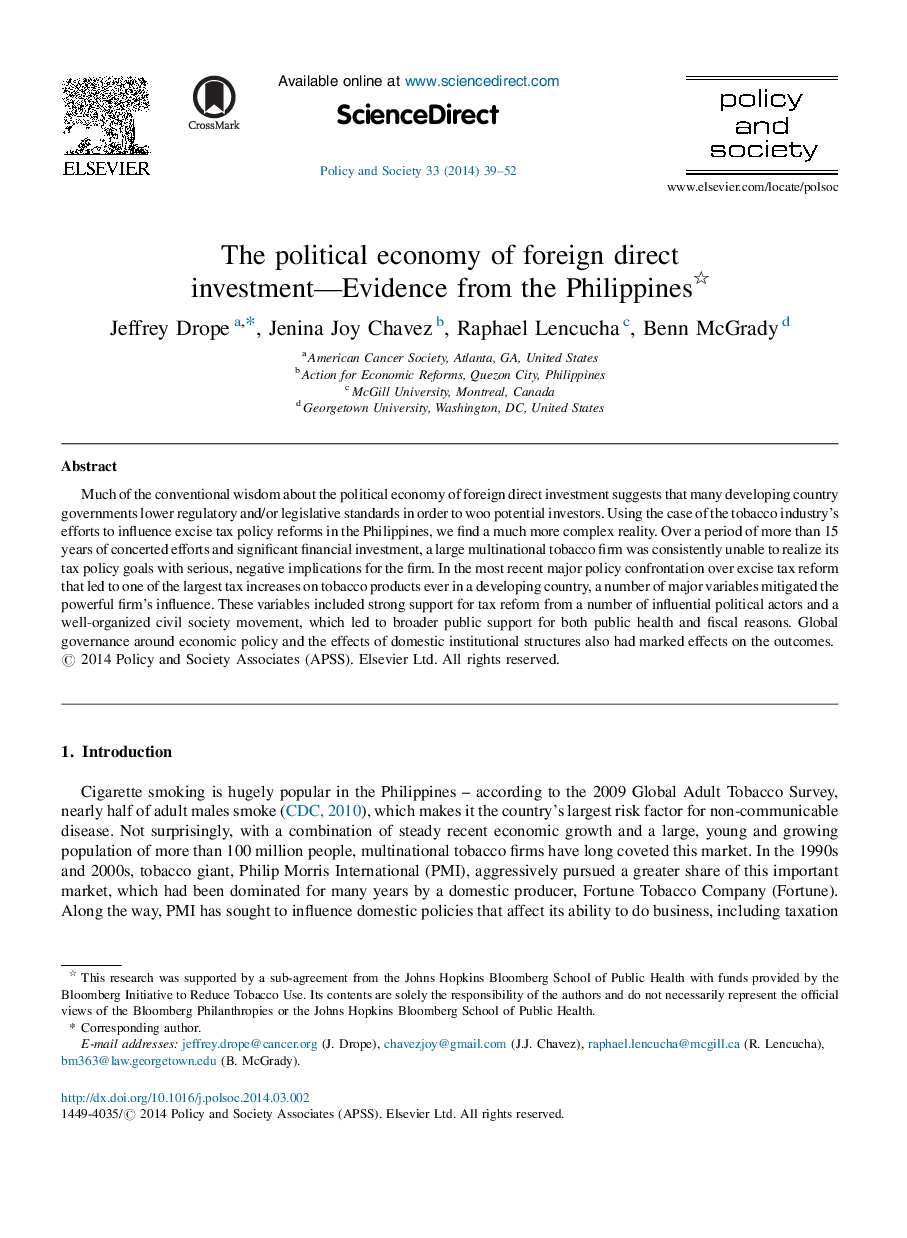| Article ID | Journal | Published Year | Pages | File Type |
|---|---|---|---|---|
| 1061499 | Policy and Society | 2014 | 14 Pages |
Much of the conventional wisdom about the political economy of foreign direct investment suggests that many developing country governments lower regulatory and/or legislative standards in order to woo potential investors. Using the case of the tobacco industry's efforts to influence excise tax policy reforms in the Philippines, we find a much more complex reality. Over a period of more than 15 years of concerted efforts and significant financial investment, a large multinational tobacco firm was consistently unable to realize its tax policy goals with serious, negative implications for the firm. In the most recent major policy confrontation over excise tax reform that led to one of the largest tax increases on tobacco products ever in a developing country, a number of major variables mitigated the powerful firm's influence. These variables included strong support for tax reform from a number of influential political actors and a well-organized civil society movement, which led to broader public support for both public health and fiscal reasons. Global governance around economic policy and the effects of domestic institutional structures also had marked effects on the outcomes.
